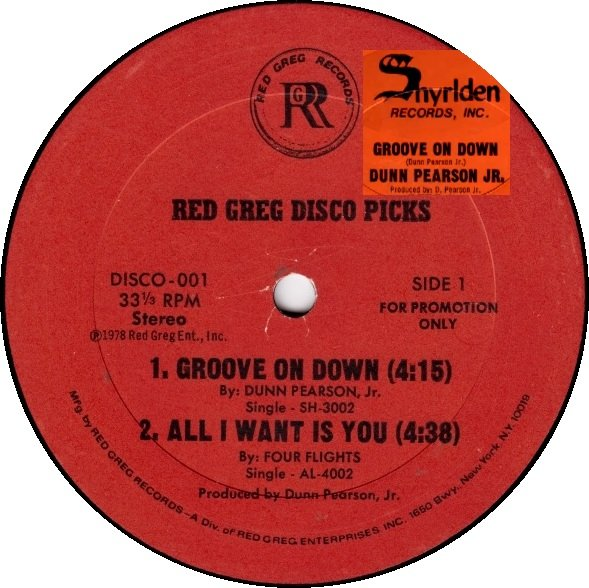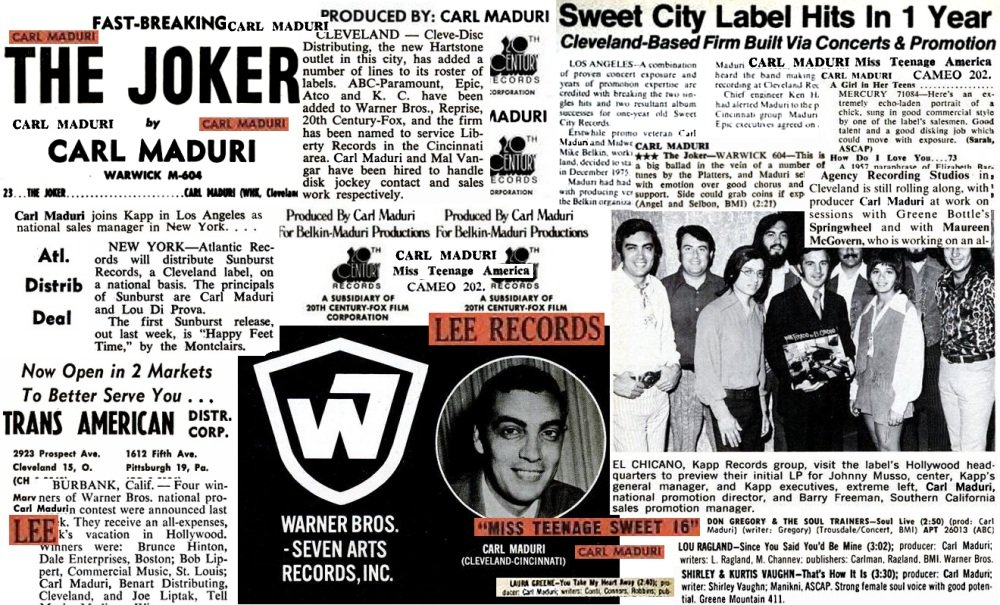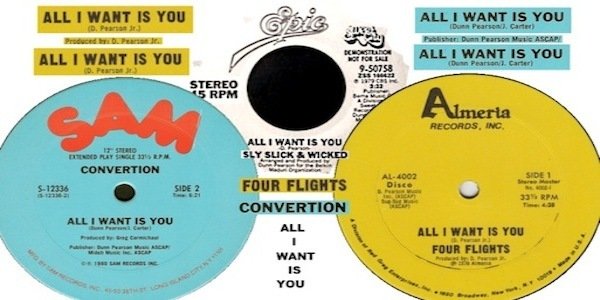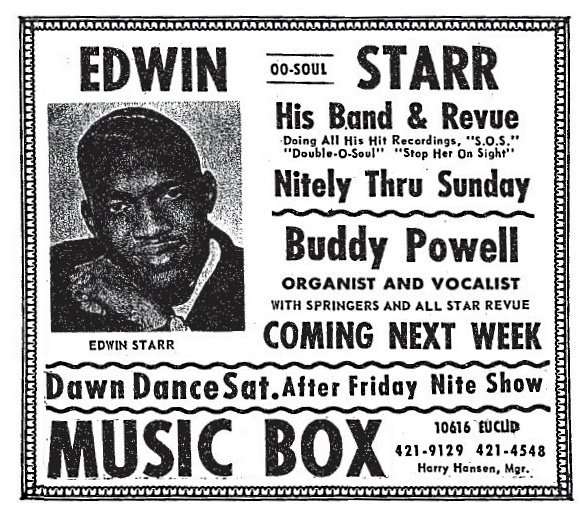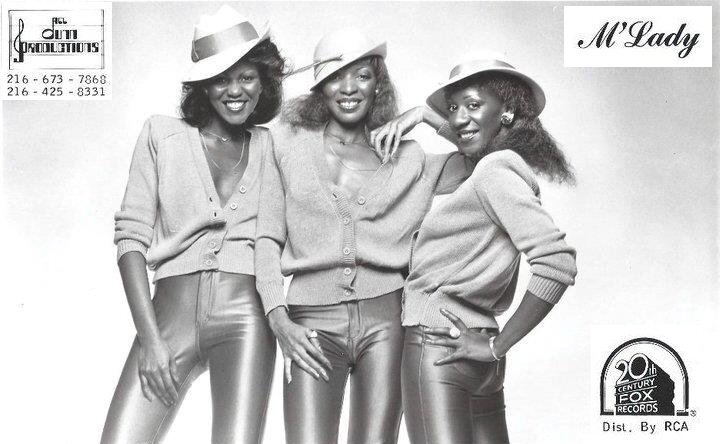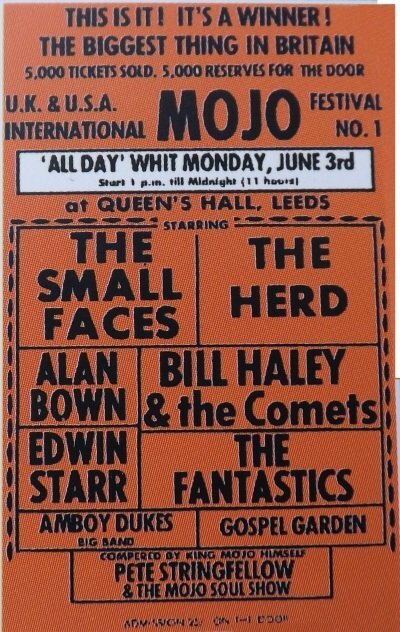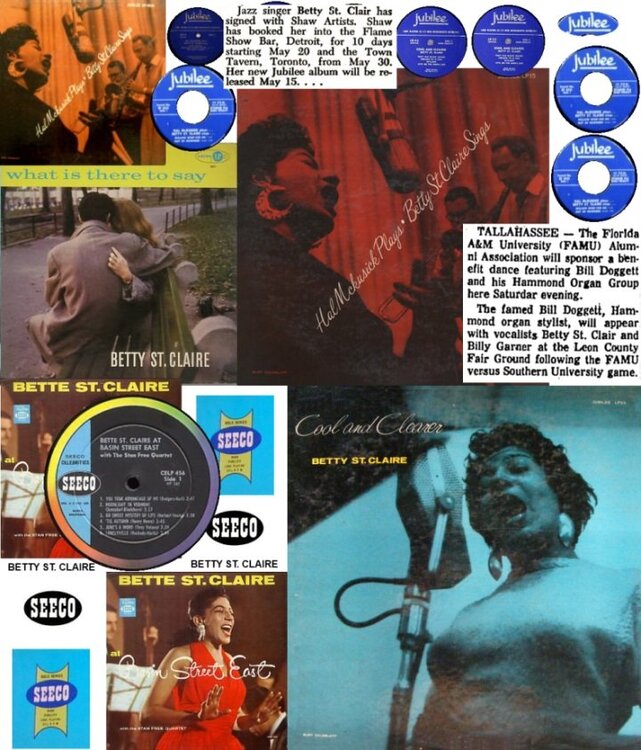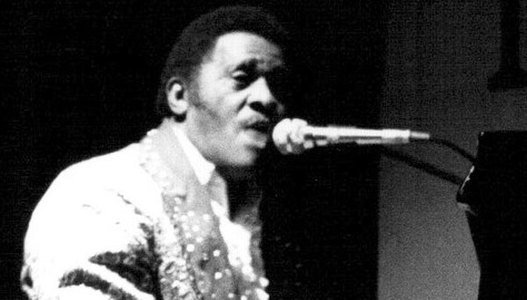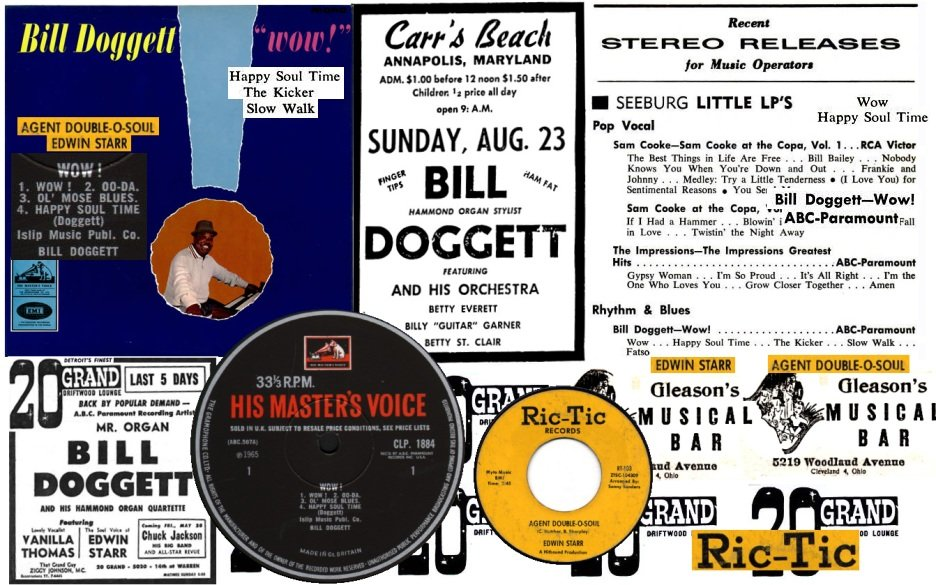-
Posts
7,237 -
Joined
-
Last visited
-
Days Won
45 -
Feedback
0%
Content Type
Forums
Event Guide
News & Articles
Source Guidelines and Help
Gallery
Videos Directory
Source Store
Everything posted by Roburt
-
Came across some clips of this old American TV music show online .... Loads of crap acts , old TV show clips & adverts + some naff dancing BUT also some decent soul acts were on there as guests. ........... here's a listing of just a few of them .............. Where The Action Is — Season 2; Episode 229 July 29, 1966: Kim Weston "Helpless" & "Take Me In Your Arms" Where The Action Is — Season 2; Episode 231 Bobby Moore and Rhthym Ace "We've Got That" & "Searching For My Love." Where The Action Is — Season 2; Episode 232 Shades of Blue "Lonely Summer" & "Oh, How Happy" Where The Action Is — Season 2; Episode 233 Marvin Gaye "Take This Heart of Mine"; Martha and the Vandellas "Dancing in the Street"; Chris Clark "Don't Be Too Long" Where The Action Is — Season 2; Episode 234 The Drifters "Memories Are Made of This" Where The Action Is — Season 2; Episode 236 The Temptations "Ain't Too Proud to Beg" & "My Girl" Where The Action Is — Season 2; Episode 237 The Four Tops "Something About You" & "Loving You Is Sweeter Than Ever" The Young Rascals "You Better Run" and "Good Lovin'" Where The Action Is — Season 2; Episode 238 James Brown "Out of Sight" & "It's a Man's Man's Man's World" Where The Action Is — Season 2; Episode 245 The Five Stairsteps "World of Fantasy" & "You've Waited Too Long" Where The Action Is — Season 2; Episode 247 Jimmy Hughes "Neighbor, Neighbor" & "Don't Walk On Me" Where The Action Is — Season 2; Episode 252 August 31, 1966: The Temptations "Get Ready" & "Beauty Is Only Skin Deep." How many of the old shows still exist & have the soul clips been grouped together and put out on DVD ?? A couple of clips .............
-
Marva has been working on her autobiography for about 2 years now, in conjunction with a UK book publisher (Bankhouse Books). They were just incorporating an update on her recent work & adding the last few photos, the book would then have been ready to launch. Hope it still comes out.
-
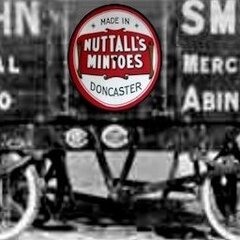
Articles: Dunn Pearson & The 9th Street Exit
Roburt replied to Roburt's topic in Front Page News & Articles
Kegsy has posted up another Sweet City track on the SOUL SOURCE RECORD CLUB DAILY PICK thread (post # 936) .... it's the fine outing from John Wilson (leader of Sly, Slick & Wicked) -- "Ain't Enough Loving". A rare little 45 I've always lusted after (as he never fails to remind me). I think he's put it up on here as he intends to send me the 45 as a Chrissy present. -

Articles: Edwin Starr's Cleveland Years
Roburt replied to Roburt's topic in Front Page News & Articles
To follow on from the above club ad .... ... Edwin's Motown publicity shot ......... I believe it's well known that Edwin had been touring in the UK when Golden World was taken over. He returned to the States & turned up for his 1st gig back there to be greeted by a Motown artist on the same bill (a Temptation I think). The guy welcomed Edwin to Motown and it was the first he knew about the change to his contract status. -
An interview with her done a few years back ....... https://www.wefunkradio.com/extra/marva
-
Yes, yet another sad loss ..... RIP Marva ............ I bought a UK Polydor LP as a new release back in 1968 ...... .. it's titled 'Soul Seller' and just features James Brown related King stuff. Marva has two tracks that were included on the album & I've loved her stuff ever since. Lots of the tracks included on the album are more deep soul than funk styled cuts... ... this one from Marva falls into that bag .. "If You Love Me" ....
-
There's a picture of L.E.T. on the LITTLE EDDIE TAYLOR thread from earlier this year. There's also a handbill for one of his Miami shows (where he was from) on the OLD MIAMI SOUL SHOWS thread (post # 58). More info on him here .... https://www.sirshambling.com/artists_2012/T/little_eddie_taylor/index.php
-

Articles: Dunn Pearson & The 9th Street Exit
Roburt replied to Roburt's topic in Front Page News & Articles
A youtube post on Dunn .......... ... basically it's a promo piece for him, but it does illustrate some of his later music biz achievements ....... -

Articles: Dunn Pearson & The 9th Street Exit
Roburt replied to Roburt's topic in Front Page News & Articles
Made a slight mistake in my 'All I Want Is You' article ............ Dunn's "Groove On Down" track was released on the Shrylden label, not on Almeria. Both labels were run by Greg Carmichael and were part of his Red Gregg Records outfit. This fact (both being Red Gregg sub-labels) was demonstrated when a re-release of both "All I Want Is You" & "Groove on Down" was put out ........... on the Red Gregg label itself. Greg Carmichael certainly likes "All I Want Is You" as a song as it was he that produced the Convertion take on it and leased the cut to Sam Records. Dunn's track ............. -

Articles: Dunn Pearson & The 9th Street Exit
Roburt replied to Roburt's topic in Front Page News & Articles
Sweet City Record label (who released Sly, Slick & Wicked's take on "All I Want Is You") was run by Carl Maduri. Carl had started out as a singer in the 50's & he had landed his 1st record contract around 1960. He had a number of singles out, one on Cameo doing quite well. He soon got into the promotion side of things & started working for distributors & record labels (Kapp / Warners, etc.). He then started cutting tracks in the studio & started his own labels. He usually worked (in the 60's) in Cleveland and had a hand in the Montclairs stuff on Sunburst. He went on to work with the likes of Shirley Vaughn, Don Gregory, Lou Ragland, Laura Greene, Sly, Slick & Wicked plus a lot more. As with many people in the music biz, he sometimes cut corners & not everyone he worked with was 100% happy (the Warner 45 credited to Lou Ragland was actually recorded by Seven Miles High, the group that Lou was lead singer and head honcho for). Carl certainly had a long music biz career though. -
Dunn Pearson was around on the Cleveland soul scene from the late 60's through to 1980 when he relocated to New York. In that time, he backed up many local soul groups & singers, formed & led groups himself, toured (in backing bands) with top acts such as the O'Jays. He has also cut, arranged and produced his own group plus other acts on recording sessions and has generally become a 'jack of all trades' on the music scene in the city and beyond. He learnt to play instruments and sang some during his school years. The original group he helped form were known as the Shades of Soul who came together in 1969/70. Bobby English was also born in Cleveland and he was in the same home room in Junior High School as Benny Slocum. The two of then were talking one day and decided to become involved in music. Bobby had considered playing the drums, but when Benny made the drums his instrument of choice, Bobby quickly took up the saxophone. Bobby was inspired by the likes of Cannonball Adderley. Ironically, the pair started off playing in competing bands. Benny was with The Shades of Soul and Bobby with a group called The Citations. But when Benny & the other guys in Shades of Soul heard him play a solo from a Rare Earth album, they asked Bobby to join their group. The new ensemble started out as a self-contained group and they played local clubs and talent shows, quickly learning their trade. In the group's early they would play tunes by Booker T & the MG's and other instrumental tunes that featured Dunn. Kenny Red would sing lead on songs Isley Brothers cuts and pop songs such as "Midnight at the Oasis," and "On a Horse with No Name." Booby would take lead on "Ain't No Sunshine", "I Don't Want The Night to End" (a Phoebe Snow tune) and he was also responsible for getting the outfit to play a lot of jazz tunes (songs by the likes of Roy Ayers, John Klemmer, and the (Jazz) Crusaders). The group soon came to the attention of the manager of local boy band the Ponderosa Twins + One who had just made the big time (hitting nationally with a cover of Sam Cooke's “You Send Me” on Horoscope in September 1971). So they became that group's backing band and almost instantly went out on nationwide tours. The members of the band were Dunn Pearson (piano), Kenny Redon (guitar + vocals ; known as Kenny Redd but a different guy to the one who was in True Movement), Bobby English (sax + vocals), Benny Slocum (drums), Ernie Cary (bass), Booker Hollins (percussion) plus two brothers David (older) & Bobby Johnson (who were transitional members of the band as were some others). When they were touring with the Ponderosa Twins, they opened shows for Gladys Knight & The Pips, Kool & The Gang, Al Green, James Brown and many more top seeling acts. They toured right up and down the east coast but when the Twins' voices started to change, that was the end of them. After the Ponderosa Twins broke up, they became the Imperial Wonders backing band. They soon decided to go out on their own and were dubbed 9th Street Exit (the name being dreamed up by Lou Ragland & Walter Williams. 9th Street Exit being the slip road off the freeway that led into central Cleveland). With their connections to Bobby Massey and the other O'Jays, they soon landed a record deal with the locally based Solid Foundation label. Two singles soon escaped; “(Let's Make) Sweet Harmony” (SF 103) and “9th Street” (SF 107). The group got to play the songs they had recorded in local clubs and the tracks got limited local radio airplay, but significant numbers of the 45's weren't sold. Bobby didn't even remember playing on those tracks and thought that he may have been off at college at the time. They worked on tracks to form an album (to be issued under the title 'Be Happy' (B55101) but the cuts were never finished and no LP materialised. Benny, Kenny and Bobby did all the lead singing for the group and they were always competing with each another. Benny sang songs by the likes of Isaac Hayes and Barry White (he had a very nice semi-baritone voice). One of Bobby's favourite songs was Brook Benton's "Rainy Night In Georgia”. He also did a great version of "Sweet Thing" by Chaka Khan. 9th Street was regarded as a really class act. They performed all styles of music including soul, jazz, funk, r&b, rock and pop. They did a version of "Cloudy" (the Average White Band track) that included a section where the band would start swinging and Bobby would break into scat singing. One of their favourite groups was Sly and The Family Stone. When they performed at rock concerts in high school, Dunn would dress just like Sly and he would look exactly like him. Everyone acknowledged that Dunn was the most proficient musician in the group. He had complete command of his instrument and many times would play a red, white and blue Farfisa organ (just like Sly Stone). The group also acted as the studio band backing up the Imperial Wonders on the tracks they cut for Solid Foundation (as did some members of the O’Jays backing band). Bobby Massey had become the groups manager but unfortunately their releases failed to sell much outside of Cleveland itself. Dunn Pearson was learning all the time though, so he got more into song writing, producing & arranging. He picked up many 'studio skills' working on those Solid Foundation sessions. He also worked on tracks as the arranger for Way Out (Jessie Fisher “Mr. Super Nobody / Don’t Cheat On Me” in 1973), Miystic Insight Records (True Movement -- "Depression / What A Lovely Way To Meet" & Sonny Lovall —“Ghetto Boy” in 1974) Shaker Records ( Bobby & Cindy — “If This Ain't Really Love / I’ll Keep Coming Back” in 1975), CAM (Odyssey & Company — “Let Me Be / She’s Perfect”), Devaki Records (Truth — “Understanding / See You Later” in 1980) and he even got to co-produce “You’re The Girl Of My Dreams” for the O’Jays (a 1980 TSOP release). Another job he landed was the producer's role for Akron Ohio based female group M’Lady. This trio landed a deal with 20th Century Records and had 2 x 12” releases on the label (“Sweet Honey / Baby You Lied” being the 1st). By 1980, Dunn had become a 'big fish in a little pond' and so he relocated to New York but continued to work with Cleveland artists. Dunn also wrote the song “All I Want Is You” that he then cut on Four Flights (Almeria: 1978) and on Sly, Slick & Wicked (Sweet City / Epic: 1979). With their records not doing too well, the members of 9th Street Exit had become a bit disillusioned. Dunn left the group and went off to play in the O'Jay's tour band. That didn't immediately lead to the group's break up but it had a number of personnel changes. At one point they had two guitar players and then they added a piano player and two additional sax players. Bobby had just about left the group in 1977 when he was away in college, but he returned in 1978 after graduating. They played on for a little while but eventually disbanded. Bobby started playing with a jazz quartet in the early 80's and moved to Chicago in 1985 where he enrolled in graduate school. Here he studied for and was awarded a masters degree in entertainment management. While in Chicago, he continued to play and record, getting to perform all around Chicago itself plus across Indiana and Wisconsin. After 9th Street Exit had broken up, it's other members also moved on. After Dunn left the group had a number of personnel changes. At one point we had two guitar players and at another we added a piano player and two additional sax players. Benny passed away many years ago, he was shot and killed when someone attempted to rob him around 1982. Bobby himself had moved back to Cleveland from Chicago in 1990. There he started playing in a 'wedding band' with Kenny and Ernie. Ernie and Kenny were still playing together at the end of the 90's. While they were all in the wedding band they would play some of the 9th Street Exit songs. Amazingly, though many years had passed, Kenny still remembered every song and lick. When Bobby had auditioned for the wedding band (at Ernie's request) the leader of the band had asked if he sang. Kenny and Ernie immediately started playing "Sara Smile" and Bobby had started singing the song (which had been one of the songs he had sung with 9th Street). Back around 2000, Bobby English lived in LA. Ernie passed away, he died of a heart attack in the late 1990's. Dunn had teamed up with Bruce Gray (probably via his O'Jays Philly connection) and they formed Dunn & Bruce Street. As half of Dunn & Bruce Street he had a number of releases. “ If You Come With Me / The Moment Of Truth” (Devaki DK 4005) was issued in 1981, the A side being both written, produced & arranged by Dunn and Bruce (this also got a UK release on Satril in 83 with a different B side -- Satril SAT 503). Next up came “Shout For Joy / Yearnin & Burnin” (DK1009) in 1982 (both tracks being written, produced & arranged by Dunn & Bruce — this also escaped as a UK 12” release as SATRIL SAT 500 in 82). An album, 'Official Business' (Devaki DKI 30003), also came out in 82 and this featured 8 tracks (all being written, produced & arranged by pair). All the duet's tracks were recorded at Blank Tape Studios, New York and featured Bruce Gray on lead vocals. Dunn handled backing vocals along with Tawatha Agee, Fonzie Thornton, etc. The musicians on their recordings were Dunn (keys / synths), Bruce, Phillip Woo (drums), Yogi Horton, Woody Cunningham (bass) Raymond Jackson (guitar) & Doc Powell. From 1983, Dunn started to cut solo efforts while continuing to work in the studio with other artists. He cut “ Go For The Gusto” (Compose 9904-12) in 1989 that featured Jocelyn Brown on lead vocals. This was followed by a 10 track album (9904-1) on which all the songs were self written except Gary Glenn's “Caught Up In The Rapture”. He worked with musicians & vocalists such as Grover Washington, Noel Pointer, Bernard Watt, Doc Powell, Willie Ross and Benny Diggs. A good vocal track, “Most Definitely” was laid down at Hip Pocket Studio, NY and this came out on Bounce. Dunn also worked in the studio with Teddy Prendergrass, Stephanie Mills, Lou Rawls, Mtume, the Spinners, Stevie Wonder, D’Angelo, LSG ( Levert, Sweat, Gill), Mary J Blige and others. He scored the Broadway musical 'Amen Corner' and films like “Native Son “ & “Head Office”. He also worked on the TV show ‘New York Undercover’ and composed dozens of commercials. He did other work for PPI and in 1999, the CD 'Under Cover Lover' (again for Bounce Records of Newark, NJ). This CD featured “Up All Night” cut with April Harris & Najee. Since then he has also worked with Grover Washington (again), Fred Watt, Marion Meadows, Freddie Hubbard, Freddie Jackson, Portia Martin, Voice of Harmony, Janice Dempsey, Gerald Albright and Patrice Rushen. So from his humble musical beginnings in Cleveland, Dunn has gone on to leave a lasting legacy in the recording & performing worlds. Many of his old recordings and production efforts are much sought after by record collectors, having stood up to the 'test of time' more than adequately. The "ALL I WANT IS YOU" Story Around 1978, Cleveland based Dunn Pearson wrote a song titled “ All I Want Is You”. It is just one of hundreds of songs that Dunn has written but apart from it being a classy composition, it also acts as a classic example of the good and bad events that can overtake soul recordings and the tunes involved. Dunn Pearson had started out in the music business in Cleveland backing groups such as the Ponderosa Twins + One and the Imperial Wonders. From there he progressed to leading his own group, 9th Street Exit and also writing for, arranging and producing other recording artists. He joined the O’Jays backing band, all the time expanding his musical knowledge and increasing his experience. His compositional skills were also becoming more widely recognised and soon his songs were being recorded by a number of other artists. Although still associated with the O’Jays, Dunn secured himself a recording deal with Almeria Records in New York and they issued his track “Groove On Down” in 1978. Just prior to this, Tony Richburg, the O’Jays tour manager had taken an interest in a group made up of four guys from Chicago, the Four Flights. The group were fetched to Cleveland and placed under Dunn’s supervision. He had written a song that he thought would suit the group and so “All I Want Is You” was cut on them. Today, Dunn can’t recall any names of the group’s members (their association being a one off affair), however his cousin John Wilson remembers meeting up with the group. He had met them at the Shaker Records (an O’Jays label) building in Miles Avenue in Cleveland and remembers one of the Four Flight members well. The member in question, an extremely stout guy had gone by the name of 'ROUND POUND' due to his weight and stature. Dunn really liked the resulting cut and decided to offer it to the people at Almeria Records. They were also impressed with Four Flights and Dunn’s efforts, so licensed the track for release. To everyone's relative surprise, the record was really well received and garnered some good radio exposure. Although the group's release had created some interest, the O’Jays and Dunn had careers of their own to sustain. So with no one really masterminding any future for them, the group gave up and returned home to Chicago . Just like Dunn, his relative John Wilson was also actively engaged in the music business. In the early 70’s he had formed the group Sly, Slick and Wicked and they had gone on to enjoy releases on the Paramount, People, Shaker and Ju-Par labels. The line up of his trio had changed with the passage of time but John had soldiered on. In 1978 he recruited two new members in order to keep the group going. Scott Pitman became ‘Slick’ and Jerome Pratt ‘Wicked’ (John obviously being ‘Sly’). At the same time that Dunn was working with the Four Flights, Carl Maduri, a veteran of the Cleveland recording scene (he had produced Lou Ragland’s 1973 WB 45 “Since You said You’d Be Mine”) was just setting up a new label, Sweet City. Carl obtained national distribution for his label via Epic Records. As John knew him well, he arranged a meeting with Carl with a view to securing his outfit a recording deal. At this meeting John played Carl the song Dunn had written and Carl liked the song as well. As he had also always liked John’s group, he signed Sly, Slick & Wicked’s new line-up to Sweet City Records. John called Dunn and asked him if he still had the master tape from the Four Flights session. Dunn confirmed he did and so a short while later, Sly, Slick & Wicked added their vocals (at the Painsville Studios) to the original musical track. John had developed an opening dialogue to precede the music track and he also handled lead vocals duties on the cut. Everyone involved liked the results of the session and the track was subsequently released on a Epic / Sweet City single (Epic 9-50758). Unfortunately once again, little or no promotion was put behind the release of the song on 45 and so it didn’t make any major commercial impact. Dunn’s links with Almeria lapsed and he struck up a new musical partnership with Philadelphian, Bruce Gray. The duo signed with Devaki Records as Dunn & Bruce Street and subsequently went on to enjoy both single and album releases on the label (some of these even gaining UK releases at the time). His old song had gained a few influential admirers along the way though and hadn’t been completely forgotten. Recording industry stalwart Greg Carmichael also had connections with Almeria Records at about the same time as Dunn was placing product with them. His New York based Red Gregg Enterprises had signed their artist Ben Wiggins with the label in 1978. Almeria had subsequently released Ben’s cuts "Its All Over / I Love You Too Much" as a single (Almeria 4003). In 1980 another version of “All I Want Is You” was released, this time on Sam Records. The group who had cut this third version going by the name of Convertion. A familiar figure was associated with their effort, it’s producer being none other than Greg Carmichael. Matters with regard to this release were not altogether straightforward though. The song had now been assigned to a publishing company that Dunn had no knowledge of and it had also acquired an extra writer along the way (a certain J Carter). In fact Dunn had only been made aware of the new version by accident. His attorney (at that time) was representing the composers of the song on the other side of the Convertion single and in passing had happened to notice Dunn’s name on the label of the record. As a result, he got in touch with Dunn and needless to say, legal action seemed appropriate. So this one song had, in a short space of time, managed to attract enough interest to gain three different released versions. All three of these recordings have stood the test of time well and are still much sought after today by soul music collectors from around the globe. Thus good things were achieved by the song, however the murkier side of the business had also been demonstrated by the third version of it that had been cut."¨ 4 Flights ….. Sly,Sl & W …. Convertion …..
-
Dunn Pearson was around on the Cleveland soul scene from the late 60's through to 1980 when he relocated to New York. In that time, he backed up many local soul groups & singers, formed & led groups himself, toured (in backing bands) with top acts such as the O'Jays. Tap to view this Soul Source News/Article in full
-

Articles: Edwin Starr's Cleveland Years
Roburt replied to Roburt's topic in Front Page News & Articles
-
More info on 9th Street Exit & Dunn Pearson .... ..... (suppose it needs its own thread but as the question was asked here, thought I'd start it off here at least) ............. DUNN PEARSON & 9th STREET EXIT Dunn Pearson was around on the Cleveland soul scene from the late 60's through to 1980 when he relocated to New York. In that time, he backed up many local soul groups & singers, formed & led groups himself, toured (in backing bands) with top acts such as the O'Jays. He has also cut, arranged and produced his own group plus other acts on recording sessions and has generally become a 'jack of all trades' on the music scene in the city and beyond. He learnt to play instruments and sang some during his school years. The original group he helped form were known as the Shades of Soul who came together in 1969/70. Bobby English was also born in Cleveland and he was in the same home room in Junior High School as Benny Slocum. The two of then were talking one day and decided to become involved in music. Bobby had considered playing the drums, but when Benny made the drums his instrument of choice, Bobby quickly took up the saxophone. Bobby was inspired by the likes of Cannonball Adderley. Ironically, the pair started off playing in competing bands. Benny was with The Shades of Soul and Bobby with a group called The Citations. But when Benny & the other guys in Shades of Soul heard him play a solo from a Rare Earth album, they asked Bobby to join their group. The new ensemble started out as a self-contained group and they played local clubs and talent shows, quickly learning their trade. In the group's early they would play tunes by Booker T & the MG's and other instrumental tunes that featured Dunn. Kenny Red would sing lead on songs Isley Brothers cuts and pop songs such as "Midnight at the Oasis," and "On a Horse with No Name." Booby would take lead on "Ain't No Sunshine", "I Don't Want The Night to End" (a Phoebe Snow tune) and he was also responsible for getting the outfit to play a lot of jazz tunes (songs by the likes of Roy Ayers, John Klemmer, and the (Jazz) Crusaders). The group soon came to the attention of the manager of local boy band the Ponderosa Twins + One who had just made the big time (hitting nationally with a cover of Sam Cooke's “You Send Me” on Horoscope in September 1971). So they became that group's backing band and almost instantly went out on nationwide tours. The members of the band were Dunn Pearson (piano), Kenny Redon (guitar + vocals ; known as Kenny Redd but a different guy to the one who was in True Movement), Bobby English (sax + vocals), Benny Slocum (drums), Ernie Cary (bass), Booker Hollins (percussion) plus two brothers David (older) & Bobby Johnson (who were transitional members of the band as were some others). When they were touring with the Ponderosa Twins, they opened shows for Gladys Knight & The Pips, Kool & The Gang, Al Green, James Brown and many more top seeling acts. They toured right up and down the east coast but when the Twins' voices started to change, that was the end of them. After the Ponderosa Twins broke up, they became the Imperial Wonders backing band. They soon decided to go out on their own and were dubbed 9th Street Exit (the name being dreamed up by Lou Ragland & Walter Williams. 9th Street Exit being the slip road off the freeway that led into central Cleveland). With their connections to Bobby Massey and the other O'Jays, they soon landed a record deal with the locally based Solid Foundation label. Two singles soon escaped; “(Let's Make) Sweet Harmony” (SF 103) and “9th Street” (SF 107). The group got to play the songs they had recorded in local clubs and the tracks got limited local radio airplay, but significant numbers of the 45's weren't sold. Bobby didn't even remember playing on those tracks and thought that he may have been off at college at the time. They worked on tracks to form an album (to be issued under the title 'Be Happy' (B55101) but the cuts were never finished and no LP materialised. Benny, Kenny and Bobby did all the lead singing for the group and they were always competing with each another. Benny sang songs by the likes of Isaac Hayes and Barry White (he had a very nice semi-baritone voice). One of Bobby's favourite songs was Brook Benton's "Rainy Night In Georgia”. He also did a great version of "Sweet Thing" by Chaka Khan. 9th Street was regarded as a really class act. They performed all styles of music including soul, jazz, funk, r&b, rock and pop. They did a version of "Cloudy" (the Average White Band track) that included a section where the band would start swinging and Bobby would break into scat singing. One of their favourite groups was Sly and The Family Stone. When they performed at rock concerts in high school, Dunn would dress just like Sly and he would look exactly like him. Everyone acknowledged that Dunn was the most proficient musician in the group. He had complete command of his instrument and many times would play a red, white and blue Farfisa organ (just like Sly Stone). The group also acted as the studio band backing up the Imperial Wonders on the tracks they cut for Solid Foundation (as did some members of the O’Jays backing band). Bobby Massey had become the groups manager but unfortunately their releases failed to sell much outside of Cleveland itself. Dunn Pearson was learning all the time though, so he got more into song writing, producing & arranging. He picked up many 'studio skills' working on those Solid Foundation sessions. He also worked on tracks as the arranger for Way Out (Jessie Fisher “Mr. Super Nobody / Don’t Cheat On Me” in 1973), Miystic Insight Records (True Movement -- "Depression / What A Lovely Way To Meet" & Sonny Lovall —“Ghetto Boy” in 1974) Shaker Records ( Bobby & Cindy — “If This Ain't Really Love / I’ll Keep Coming Back” in 1975), CAM (Odyssey & Company — “Let Me Be / She’s Perfect”), Devaki Records (Truth — “Understanding / See You Later” in 1980) and he even got to co-produce “You’re The Girl Of My Dreams” for the O’Jays (a 1980 TSOP release). Another job he landed was the producer's role for Akron Ohio based female group M’Lady. This trio landed a deal with 20th Century Records and had 2 x 12” releases on the label (“Sweet Honey / Baby You Lied” being the 1st). By 1980, Dunn had become a 'big fish in a little pond' and so he relocated to New York but continued to work with Cleveland artists. Dunn also wrote the song “All I Want Is You” that he then cut on Four Flights (Almeria: 1978) and on Sly, Slick & Wicked (Sweet City / Epic: 1979). With their records not doing too well, the members of 9th Street Exit had become a bit disillusioned. Dunn left the group and went off to play in the O'Jay's tour band. That didn't immediately lead to the group's break up but it had a number of personnel changes. At one point they had two guitar players and then they added a piano player and two additional sax players. Bobby had just about left the group in 1977 when he was away in college, but he returned in 1978 after graduating. They played on for a little while but eventually disbanded. Bobby started playing with a jazz quartet in the early 80's and moved to Chicago in 1985 where he enrolled in graduate school. Here he studied for and was awarded a masters degree in entertainment management. While in Chicago, he continued to play and record, getting to perform all around Chicago itself plus across Indiana and Wisconsin. After 9th Street Exit had broken up, it's other members also moved on. After Dunn left the group had a number of personnel changes. At one point we had two guitar players and at another we added a piano player and two additional sax players. Benny passed away many years ago, he was shot and killed when someone attempted to rob him around 1982. Bobby himself had moved back to Cleveland from Chicago in 1990. There he started playing in a 'wedding band' with Kenny and Ernie. Ernie and Kenny were still playing together at the end of the 90's. While they were all in the wedding band they would play some of the 9th Street Exit songs. Amazingly, though many years had passed, Kenny still remembered every song and lick. When Bobby had auditioned for the wedding band (at Ernie's request) the leader of the band had asked if he sang. Kenny and Ernie immediately started playing "Sara Smile" and Bobby had started singing the song (which had been one of the songs he had sung with 9th Street). Back around 2000, Bobby English lived in LA. Ernie passed away, he died of a heart attack in the late 1990's. Dunn had teamed up with Bruce Gray (probably via his O'Jays Philly connection) and they formed Dunn & Bruce Street. As half of Dunn & Bruce Street he had a number of releases. “ If You Come With Me / The Moment Of Truth” (Devaki DK 4005) was issued in 1981, the A side being both written, produced & arranged by Dunn and Bruce (this also got a UK release on Satril in 83 with a different B side -- Satril SAT 503). Next up came “Shout For Joy / Yearnin & Burnin” (DK1009) in 1982 (both tracks being written, produced & arranged by Dunn & Bruce — this also escaped as a UK 12” release as SATRIL SAT 500 in 82). An album, 'Official Business' (Devaki DKI 30003), also came out in 82 and this featured 8 tracks (all being written, produced & arranged by pair). All the duet's tracks were recorded at Blank Tape Studios, New York and featured Bruce Gray on lead vocals. Dunn handled backing vocals along with Tawatha Agee, Fonzie Thornton, etc. The musicians on their recordings were Dunn (keys / synths), Bruce, Phillip Woo (drums), Yogi Horton, Woody Cunningham (bass) Raymond Jackson (guitar) & Doc Powell. From 1983, Dunn started to cut solo efforts while continuing to work in the studio with other artists. He cut “ Go For The Gusto” (Compose 9904-12) in 1989 that featured Jocelyn Brown on lead vocals. This was followed by a 10 track album (9904-1) on which all the songs were self written except Gary Glenn's “Caught Up In The Rapture”. He worked with musicians & vocalists such as Grover Washington, Noel Pointer, Bernard Watt, Doc Powell, Willie Ross and Benny Diggs. A good vocal track, “Most Definitely” was laid down at Hip Pocket Studio, NY and this came out on Bounce. Dunn also worked in the studio with Teddy Prendergrass, Stephanie Mills, Lou Rawls, Mtume, the Spinners, Stevie Wonder, D’Angelo, LSG ( Levert, Sweat, Gill), Mary J Blige and others. He scored the Broadway musical 'Amen Corner' and films like “Native Son “ & “Head Office”. He also worked on the TV show ‘New York Undercover’ and composed dozens of commercials. He did other work for PPI and in 1999, the CD 'Under Cover Lover' (again for Bounce Records of Newark, NJ). This CD featured “Up All Night” cut with April Harris & Najee. Since then he has also worked with Grover Washington (again), Fred Watt, Marion Meadows, Freddie Hubbard, Freddie Jackson, Portia Martin, Voice of Harmony, Janice Dempsey, Gerald Albright and Patrice Rushen. So from his humble musical beginnings in Cleveland, Dunn has gone on to leave a lasting legacy in the recording & performing worlds. Many of his old recordings and production efforts are much sought after by record collectors, having stood up to the 'test of time' more than adequately.
-
Hullsoul said ............. Say "Hi" to Graham Boulton if you see him,not seen him since I was a teenager. Pat Mercer had a stonemasons shop at one time at top of our street,didn't really know him to talk to like Graham,Steve Jenny & Stu Mumby (who I once went to Wigan with in his MG......that's another story ) Spent time with Graham Boulton & Stu Mumby in the UK and at your Mike's in Sth France about 15 months back. Graham lives in Australia now but Stu now lives between York & Hull and is STILL into MG's. Pat Mercer (last I heard) was living in Adwick (north end of Dony where our kid lives); not heard of Steve Mercer for many a year.
-
a few more places in the city centre & on Holderness Rd........That could be Regis Records ....... it was Regis Records; got loads of 45's from there between 1966 & 1970. That would be "Moving Scene"."Moving Scene" was a big haunt of our Mike,Ian & all there mates. Yep, that was it and I was one of your Mike's mates (along with Steve Jennerson, Pat & Steve Mercer, Graham Boulton and many more). Got loads of import Motown LP's from the supermarket on Holderness Rd near East Park (Jacksons ?) in the 70's as well as loads of import MGM / Verve 45's from Boyes Dept Store up near there.
-
Like many Cleveland based projects, the 9th St Exit LP never made it into the shops.
-
Seems Yorkshire soul folk thought alike back in the mid 60's. When the Mojo went from niters to Sunday alldayers in mid 67, the age of the crowd dropped. Us 'old-heads' used to moan all the time about all the 'mini-mods' spoiling our club. BTW, this was a similar do to the one Keith referred to (an alldayer staged by Stringfellow in Leeds on June 3rd 1968) .....
-

The Wheel And Late 60S Proto Northern Soul Scenes
Roburt replied to Ady Croasdell's topic in All About the SOUL
I totally agree with you Ian. There are some decent books out there that capture some of what went down in the 60's (The In Crowd, etc.) but they can only really scratch the surface as there were mod / soul crowds / scenes/ clubs in just about every big town & city. If something isn't done soon to collect up & preserve old club membership cards, club ads & flyers & peoples memories they will be lost forever. Its the same as is happening at present with old master tapes (crumbling away before the treasures they contain can be preserved. Also the same for the recollections of 60's era soul singers / musicians. Times were very different back then & so how they lived, survived & held it together on the road and in the studio needs to be documented. No plush jets to get them from gig to gig. It was travelling through the night in station wagons to fulfill chiltin circuit bookings whilst (in many areas) finding it difficult to buy food and find lodgings. ......... I've just 'updated' an old article I did on Edwin Starr's years in Cleveland and it was Bill Doggett that 'discovered' Edwin there and took him on the road. Now Bill Doggett was a major artist over a 50 year period and enjoyed 10 or so massive US hits (including "Honky Tonk" which was No.1 in 1956). Bill didn't sing himself (his recordings were just about all instrumentals) but on tour he always had featured singers. Edwin became one of those featured singers from 1963 (when in the year I have no idea) through to May 1965. Betty Everett toured with Doggett some in 1964 (though she had already started having solo hits & was cutting duets with Jerry Butler). If you want to find out info on when singers joined & left Doggett's Review it's almost impossible. Another singer who toured with Doggett for some years was Betty St. Clair. Born Betty Waddell in 1927 in Columbus. Ohio. It was there that she started singing with bands while attending East High School. Next, still a teenager, she won a big beauty contest. In the 1940's she got her first break with Butterbeans & Susie. She went on to sing with Errol Garner, Howard McGhee & Dizzy Gillespie (1949). Landing her own record contact, she recorded four albums between 1955 and 1960. During those years she was based in New York where she was a regular performer in local clubs. Sometime in the early 60's, she hooked up with Bill Doggett and toured with him until after 1966. She then seems to have retired until she succumbed to cancer in 1972. Betty's work was much respected in jazz circles & her LP's are collectable. She also had a jukebox 7" Little LP out in the mid 50's as her music was popular on juke joint machines. But as far as jazz people know, she disappeared after cutting her last LP in 1960. When she teamed up with Doggett & eventually left his review doesn't seem to be detailed at all. She was with his review from the early to mid 60's, spending some time with him in conjunction with Edwin Starr. Doggett played 'down & dirty' R&B tunes, Edwin sang straight soul but she was an 'out & out' jazz singer. How all 3 styles held together to end up with a cohesive show every night I have no idea ..... AND ... we're never likely to know now. That info seems lost forever. Betty's singing style ................ https://www.youtube.com/watch?v=m8H5N6l3OtE If something isn't done to 'capture' the 60's soul / mod info, we will also loose much of that too. -

The Wheel And Late 60S Proto Northern Soul Scenes
Roburt replied to Ady Croasdell's topic in All About the SOUL
Are you talking about Kegsy back in the day ... OR ... how he carries on @ every Cleggy Weekender (coz it certainly sounds like the later to me). -
We loose yet another old hero .......... Jimmy McC passed away yesterday .... R.I.P. ..... http://www.sfgate.co...eer-4136929.php added by site Jimmy McCracklin, one of the most prolific blues singers and songwriters of all time, with a recording career that spanned 1945 to 2010, died Thursday at Creekside Healthcare Center in San Pablo after a long convalescence. Read more: http://www.sfgate.co...p#ixzz2FkjMne2e Jimmy Mc Cracklin http://creativecommo...enses/by-sa/3.0)], by Lionel decoster (Own work), from Wikimedia Commons
-

Articles: Edwin Starr's Cleveland Years
Roburt replied to Roburt's topic in Front Page News & Articles
Edwin Starr was recruited by Bill Doggett in 1963 and went on the road with Bill's revue (singing lead vocals) from then. One of the early things Edwin must have done (though he wasn't using the name Edwin Starr yet) was to play percussion on the tracks included on Bill Doggett's ABC LP 'Wow' (cut in 64, released in January 1965). This album was issued in the US, Canada, UK, India & other regions, with a 7” jukebox 'Little LP' escaping in the States in May 65. However, Edwin can't have been on the road solidly with Bill's outfit all the time throughout 1964 (and up to June 65) as he isn't name checked on some shows that took place during that period. On August 23rd 1964, Bill Doggett's Orchestra played Carr's Beach in Maryland and for that show the featured people were Betty Everett, Billy Garner & Betty St Clair. On a show in Cleveland on Sunday March 21st 1965 at the 'House of Blues' (really Gleason's) — see attachment above -- Edwin, along with Betty St Clair were the featured singers with the review. Next time they turn up on a live show (that I know of) was in mid May 1965 when the ensemble had a week long engagement at the 20 Grand Club in Detroit. For this engagement, the featured people in the review were Edwin & Vanilla Thomas. It must have been after one of these shows that first Holliday Records & then Golden World signed Edwin to a record deal (the 1st contract was allowed to lapse when Golden World got involved). Edwin had been looking to cut a song he had recently written, “Agent OO Soul” but Doggett had been against the idea. So Edwin jumped ship, went into the Golden World studios in June 65 and his 1st Ric Tic 45 was cut, pressed & in the shops (+ on the Detroit charts) by the beginning of July 65. The rest is history …....... -
A much later duet that features Jimmy ................
-
Gone but never forgotten ...........
-
We loose yet another old hero .......... Jimmy McC passed away yesterday .... R.I.P. ..... Tap to view this Soul Source News/Article in full



